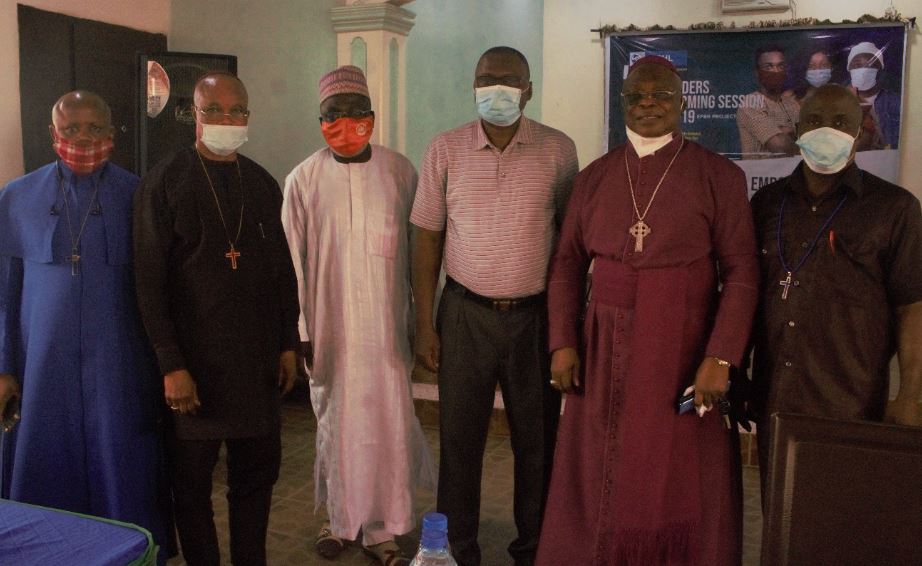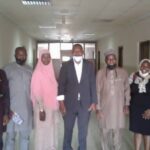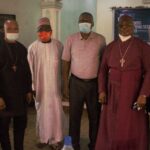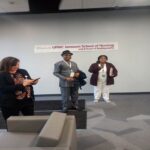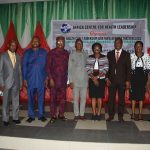Faith Based Response Pivotal to Nigeria’s Covid 19 Efforts: Achl Takes The Lead In Mobilizing FBOs Through Covid 19 EFBR Project
28
Jan
Faith Based Response Pivotal to Nigeria’s Covid 19 Efforts: Achl Takes The Lead In Mobilizing FBOs Through Covid 19 EFBR Project
Category : ACHL Activities, ACHL Events, ACHL News Update / by ACHL Admin
Religion is both a unifying and divisive factor in Nigeria’s political, social, and economic life. It is the most important subject for most Nigerians and almost everyone belongs to a religious group and the number of religious worship places runs into several thousand and members across faiths are in several million with about 46.3% of the population – Christian, 46%, Muslim and 7.4% worship traditional gods. Although there is inadequate data on the exact number of worship houses but there is a consensus that there are more places of worship than schools or hospitals.
An important programming information for development organizations is that many people are more likely to listen to and believe the words of their religious and traditional rulers than those of political leaders.
Since the outbreak of the pandemic, many religious leaders have made various pronouncements that have impacted the response in terms of how COVID 19 is perceived which has affected behavioural and communication change practices and attitudes. It behoves that religious leaders must be well informed and educated on COVID 19 to be able to provide appropriate guidance to its followers and to engage with other stakeholders in meaningful way as we work towards finding solution to this pandemic. By sharing clear, evidence-based steps to prevent COVID-19, religious-inspired institutions can promote helpful information, prevent, and reduce fear and stigma, provide reassurance to people in their communities, and promote health-saving practices. Religious leaders are integrated into their communities through service and compassionate networks and are often able to reach the most vulnerable with assistance and health information and identify those most in need. Religious leaders are a critical link in the safety net for vulnerable people within their faith community and wider communities.
With support from International Dialogue Centre (KAICCID) and ACHL partners, Africa Centre for Health Leadership is implementing a program of support to Faith-based organizations in Africa to strengthen the capacity to effectively contribute to the COVID 19 response. The focus is on behavioral change communication, support for the development of a unified Interfaith COVID 19 Guidelines, the training of FBO and CBO COVIID 19 Desk Officers on the implementation of COVID 19 guidelines and in ensuring that the required equipment, commodities, and other essentials are available for FBOs and CBOs to mount an effective response. It is a three-pronged project
- Capacity Strengthening of key FBO stakeholders
- Providing policy, programmatic direction, and coordination through the development of Interfaith guidelines on COVID19 response and
- Increasing awareness in the faith communities for them to take positive action individually and in groups to curb the spread of COVID19.
To kick start the implementation of the COVID 19 EFBR Project, ACHL is organizing series of advocacy, sensitization meetings and brainstorming sessions for an all-inclusive-planning and to garner stakeholder’s support, inputs, and resources for effective implementation.
A stakeholder ‘brainstorming/project kick-off session with faith-based leaders took place on Wednesday, 20th January 2021 at Emrosy Hotel, 4 Everest Bassey Drive, Uyo.
Africa Centre for Health Leadership (https://afchel.org) is a not-for-profit organization which evolved from the Health Care Leadership Project in Africa (HELPA) founded in 2003 and became fully incorporated as a non-governmental organization in 2013.
ACHL works to ensure that communities take responsibility and ownership of the healthcare system and partners effectively with stakeholders to improve access and demand for services especially for the most vulnerable and the deprived. In this regard also, we strive to address inequity in healthcare by developing leadership capacity at all levels of care. Our core mandate is to strengthen Human Resources for Health to enhance universal health coverage with reference to reproductive health, COVID-19 and other infectious diseases, gender, education, HIV/AIDS, and health systems.
Key outcomes of the meeting
Assessment of Akwa Ibom State Response to COVID 19 by FBO leaders:
Strengths: What has Worked
*AKS Government early response by sensitization using various platforms to inform the population including enforcement lockdown.
*Establishment of screening and testing centres by the Govt.
*Churches and other Faith-based bodies adopted Government guidelines on Covid-19 prevention by informing and enforcing compliance.
*Establishment of Hotlines and Emergency Information Centres for information on Covid-19 support and provision of Palliatives.
*Contact tracing and free treatment of Covid-19 patients.
What has not worked
*Little or no change in behaviour towards compliance with Covid-19 protocols.
*Inadequate supplies of commodities for Covid-19 protection and prevention.
*Lack of support for FBOs in response to Covid-19 prevention and control activities.
*Lack or poor observation of social/ physical distance by the citizens, esp. in public places such as markets, etc.
*Lack of adequate attention to health care workers including lack of PPEs.
*Lack of specific support for vulnerable groups such as children, women and the physically challenged.
*Lack of access to life support for critically ill Covid-19 patients.
*Playing politics with Covid-19 issues and lack of collaboration among interest groups including FBOs.
*Poor coordination of testing/ isolation and follow up.
*Awareness not linked accurate knowledge on Covid-19 awareness
Threats
*Religious myths concerning Covid-19 in particular and health in general
*Fear and or risks of wearing facemasks for long, e.g., Church services.
*Congestions at Test centres
KEY ISSUES FOR FBOS/ SUMMING UP.
*Adopting a unified understanding and position on COVID 19 through the development and operationalization of a consolidated FBO guidelines in response to Covid-19
*Documentation of activities and response to Covid-19 by FBOs.
*FBOs to play positive roles in dispersing falsehoods concerning Covid-19 Vaccines and promoting positive attitude towards accepting vaccines.
*Provide accurate and information to all targeting different groups and media.
*Adopting measures to reduce physical distance in respect to exchange of items, including money, documents, etc, in Churches and worship centres.


